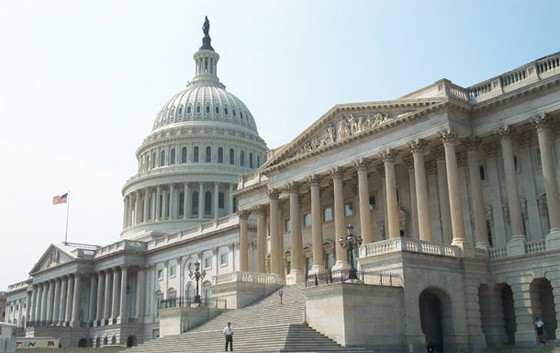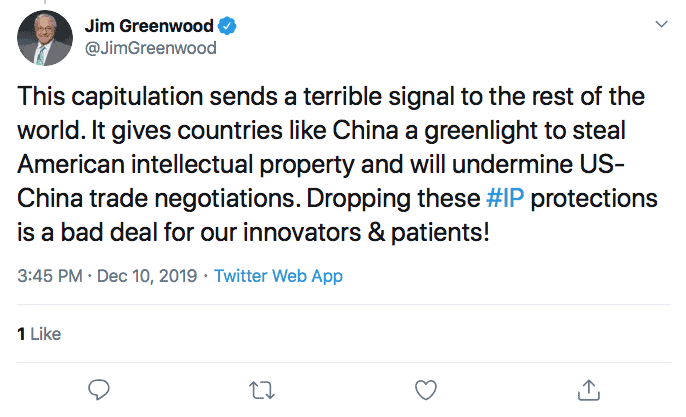
The pharmaceutical industry has been dealt a blow in the latest negotiations for a new North American trade deal, after an agreement was made to do away with biologic exclusivity protections.
The negotiations between the US, Mexico and Canada have reached an agreement to scrap patent exclusivity for biologics, meaning that each country can determine its own rules.
In the past, the US has pushed to have its exclusivity rules applied to trading partners – in the US, new drugs are afforded 12 years exclusivity for biologics.
The new USMCA trade deal was initially set to agree on a ten year patent protection in all three countries, but that seems to have been thrown out the window in the latest set of negotiations.
This change means that the ten-year period in which pharma companies can keep test data and other information related to their drugs confidential is no longer applicable.
Historically, pharmaceutical companies have benefited from trade deals in the US, but this development is a big blow for the industry.
It also sets a worrying precedent for other future trade deals globally, meaning that drugmakers may be looking at sooner-than-usual competition from biosimilars.
According to Politico, the compromise in the terms of the deal was needed to end a deadlock between Democrats and Republicans looking to pass the trade deal.
A spokesperson for Republican Senate Finance Chairman Chuck Grassley said: “Sen. Grassley is a strong supporter of intellectual property protections to encourage medical innovation, but the reality is that we have a divided government and compromise is necessary.”
President Trump has made drug pricing a key target for his administration, and both his Republican party and the opposition Democrat party are focusing on high drug prices as a major electoral issue ahead of the November 2020 election.
In July, the Trump administration unveiled plans to allow the reimportation of some drug from Canada into the US, in order to help patients source cheaper medicines.
The Democrats also launched their own plans to tackle high drug prices in the US, which targeted 250 high-cost drugs that would be subject to cost-cutting negotiations with Medicare.
The Republicans overwhelmingly rejected those proposed plans, with Senator Grassley offering a rival drug pricing plan.
Responding to the latest trade negotiations, industry organisation BIO’s president and CEO Jim Greenwood said: “President Trump has promised to end foreign free-riding on American medical innovation, but by removing enhanced IP protections for biologic medicines, his administration just surrendered one of the most important tools that would help stop it.”
He added: “Small US biotechnology companies depend on their government to protect them in global markets and to ensure a level playing field.
Today’s announcement declares open season on these innovators and sends a clear message that the US government will stand idly by while foreign entities attack American intellectual property, American jobs and America’s global leadership in medical innovation.”
Industry leader Jim Greenwood reacts to latest negotiations





